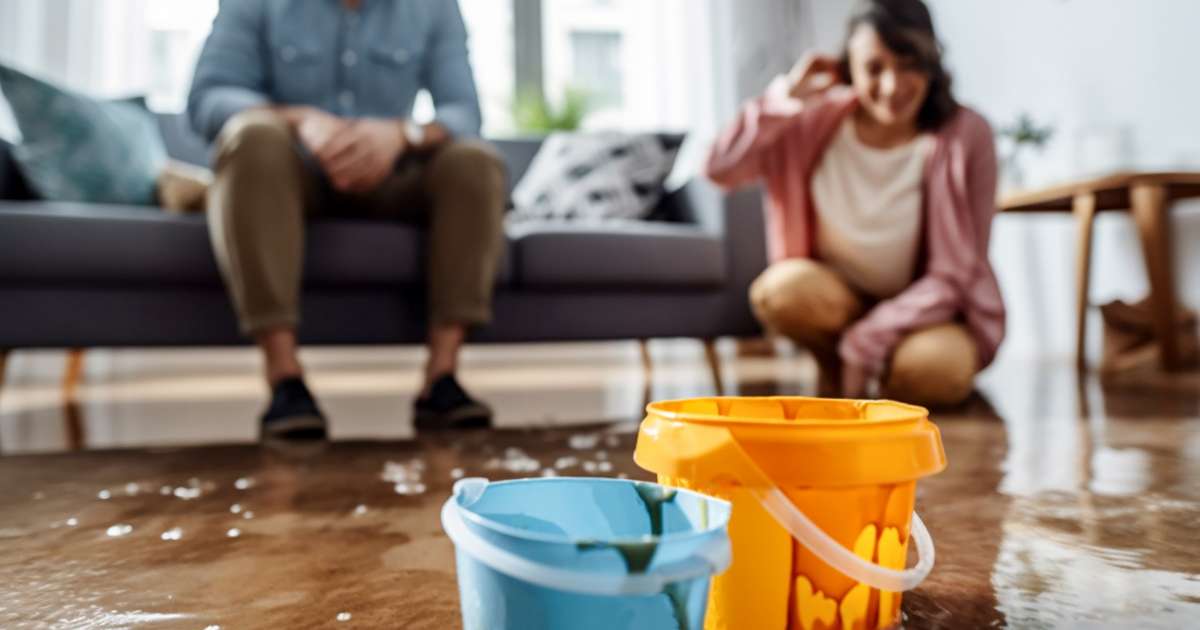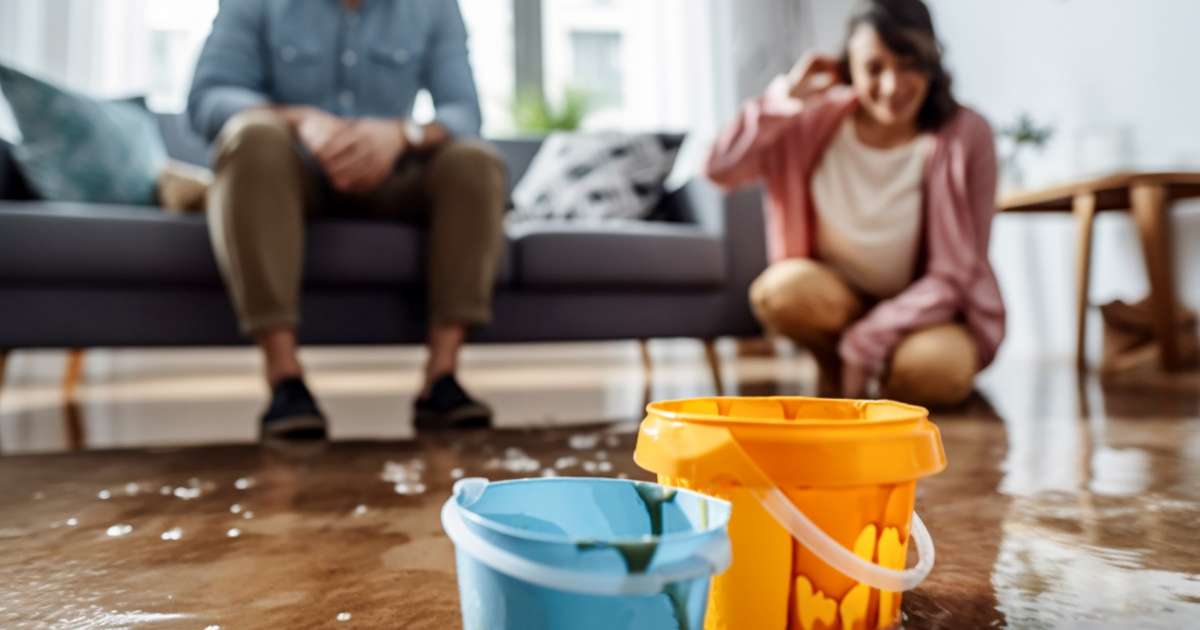Water damage to a house can be caused by small issues like condensation or tiny leaks from water pipes. This kind of damage may even be unnoticeable for a while, but if it’s left unresolved, the deterioration gets worse over time. Water entry by large leaks in pipes, overflowing sinks, broken hot water heaters, and large roof leaks is more obvious. Some events can result in fast, major flooding, such as a burst water pipe or storm flooding.
Water in a house can cause damage to sheetrock, wood framing, floors, and personal belongings, leaving homeowners with the chore of removing the water and fixing the damage. However, knowing what steps to take can make the process easier and can possibly prevent some further issues.

What should you do if water enters your house?
The presence of water in a house is an issue that should be dealt with quickly. Even a small amount of water can cause a lot of damage if ignored. Here are some important steps to take if you discover water in your home:
- Act quickly: It’s urgent to keep more water from entering your house. You may have to turn off the water main if a burst pipe is to blame. In the case of storm flooding, move your valuables to a higher floor and use makeshift barriers at doorways to try to keep water out. Cover furniture with plastic if the roof is leaking and place containers under leaks to catch and contain the water.
- Contact your insurance agent: It's important to report the issue to your insurance company right away. Your agent can give you valuable information on what to do next. You’ll also learn what your policy covers. If possible, document everything with photographs.
- Remove the water: Use fans, mops, shop-vacs, and dehumidifiers to remove the water and dampness. When dealing with flooded areas, it’s advisable to turn off the power and wear rubber gloves and boots. According to Seattle’s KIRO7, “The Seattle Fire Department does assist with pumping water out of houses in certain situations, such as after a fire or during significant flooding events. They have the equipment and expertise to handle such emergencies.”
Examine the damage.
After the water cleanup is complete, do a thorough examination of the affected areas and take more photographs for insurance purposes. Since some water damage is often hidden from view, it is advisable to have a professional Seattle-area inspector come out and do an inspection—your insurance agent may arrange this for you. Professional water damage inspectors know what to look for and have the proper tools. They’ll give you a detailed report.
Flood insurance in Seattle
Homeowners insurance policies typically don’t cover flood events. But, if you’re in a Seattle flood hazard area, your mortgage company will often require that you have it. Ask your insurance agent if you aren’t sure.
Federal programs are sometimes available to flood victims who don’t have flood insurance. The Federal Emergency Management Association (FEMA) website has important information on their website, including maps of flood zones, how to get aid, and how to buy flood insurance.
Mold remediation
A major problem when water enters your house is that the dampness is a breeding ground for mold growth. You can attack it yourself with detergent, hot water, and a scrub brush. Wear old disposable clothes, a respirator mask, and rubber gloves. Enclose the area with plastic while working and dispose of everything, including the gloves, brush, clothes, and shoes in a tied-off plastic bag.
For areas larger than a bathtub, a professional mold remediation service is advised. Untreated, mold can cause structural damage to the house and health problems to inhabitants. According to HomeBlue, mold restoration services in Seattle charge from $12 to $24 per square foot.
Restoration services
Check with your insurance agent to see what restoration services are covered by your policy. You may need to have some renovation work done that requires permits and hiring professionals. Keep all receipts, not only for insurance reasons but also for when you sell your house. You'll need to disclose any water damage and the repairs made to potential buyers. The receipts will be helpful for this purpose.
Sell a house with water damage to We Buy Ugly Houses®.
If your house has significant water damage, or damage that you don’t want to deal with, contact We Buy Ugly Houses®. We can help because we buy houses “as is” in their current condition. We launched our house-buying business in 1996, and in the years since, we’ve bought over 150,000 houses in all kinds of conditions and in many different types of situations. We believe in providing excellent personalized service, and our seller reviews reflect our strong work ethic and commitment to seller satisfaction.
Simply reach out to us for a no-obligation consultation with one of our friendly Seattle property buyers. We’ll take a tour and answer your questions. We can sometimes provide an offer on the same day. If you accept, we can sometimes close in as little as 3 weeks. If you need more time, we’ll work with you to choose a closing date that fits your schedule. We charge no commissions and have no hidden fees, and we pay typical closing costs. Our offers are typically discounted below market value in exchange for speed and convenience.
Contact We Buy Ugly Houses to learn how we can help you with the sale of your water-damaged house in Seattle.
This blog is for informational purposes only and should not be considered legal advice.











